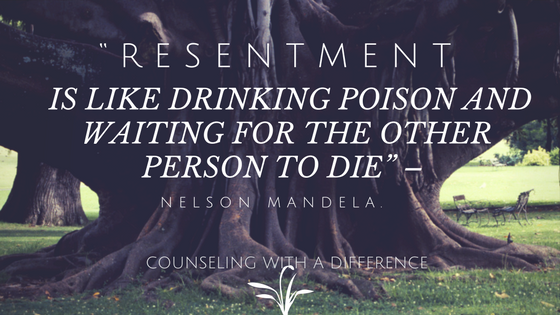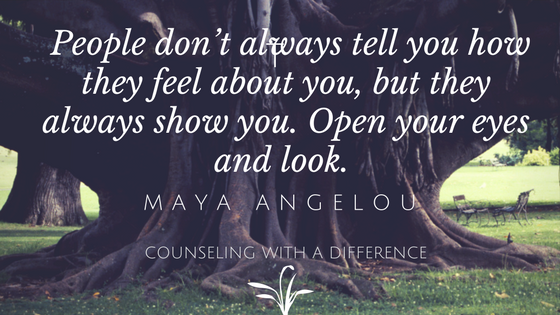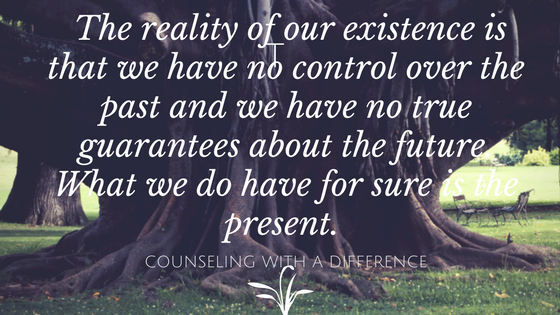
Sanya Bari, MEd, LPC, NCC, CTS, NCC
Founder and CEO of Counseling With A Difference
If you don’t know where to start your healing journey, my recommendation is to find your authenticity and dare to practice it daily. Dare to find out who you are and to be yourself.
Betrayal and heartbreak hit at everything you know to be sacred and secure. The by-product of getting hurt is that you loose your sense of self. Whatever you knew to be true has suddenly changed, your context and perspective has been shaken. Your identity has been shaken.
If you start making life choices based on the hurt state you are in today, chances are they are going to be based on insecurity and desperation. This is the reason ‘getting hurt’ and recovering wholly from it is such an important task.
Developing authenticity prevents you from getting into a relationship that can end up in pain. If you are already in an abusive relationship, developing authenticity will not allow you to continue in that relationship for long.
I can give you a good idea of how to discover what your authentic ‘self’ really is, and how to make it a part of your life:
1. Who are you?
Let’s do a little research and self-discovery. Make a list of 3 positive and 3 negative characteristics you feel you have. Ask 3 people whom you think know you to do the same (it would be nice if they are from different parts of your life, e.g. a childhood friend, a relative, a co-worker, etc.). This is research and self-discovery
2. Make your personal compass:
A part of conscious living is to approach life and it’s decisions in a way that each choice you make takes you in the direction of your personal values and goals.
Write down 5 values or characteristics you admire that you want to see in yourself. These values can belong to a real person or even a character from a story). They can also be your values and characteristics you have and want to preserve in yourself.
3. Boundaries:
It is impossible to uphold your values unless you practice enforcing your boundaries. Boundaries are rules you have for other people.
Write down the boundaries you want to maintain to guard the values and characteristics you have written down. They always start with “I will not allow ______”. For example; “I will not allow anyone to tell me how I should think or feel”, “I will not allow anyone to make me feel guilty for saying ‘no’.”
Once you have a good idea of who you are and who you are choosing to be work on the following tasks:
1. Forgive yourself and others:
Forgiving others is not a favor you do for others, it is actually releasing yourself from shackles.

Forgive yourself for: not protecting yourself, for not knowing when people were taking advantage of you, for hurting yourself, etc. Nathanial Brandon said, of all the judgments you make, the most important judgment is the one you make of yourself. That self-judgement colors our every thought, feeling, and behavior. So be careful what you think of yourself.
Not forgiving encourages perfectionism in self and others, which is not only an unrealistic phenomenon, it is the destroyer of peace and happiness.
2. Get attuned to yourself and then Be yourself:
Become aware of your thoughts and feeling. Develop trust in them by acknowledging them and acting on them (as long as you are not hurting anyone).
If you want to double check to gain more confidence before you act, go through the list of values and boundaries and make a decision accordingly.
Remember not to worry about other people’s reactions to you being authentically ‘you’. If they don’t like you when you are actually being ‘you’ then it is time you see the reality of who they are and what you mean to them.
It means they don’t really love ‘you’ instead they love a version of you that they have imagined. Unless you plan to live a lie, this is a very good time to start weeding them out of your life.

3. Stay in the present:
When you get hurt, it is natural to get trapped or even overrun by traumatic triggers of the past and to be frozen into place by the uncertainty of the future.

When you start getting overwhelmed, break things down to one day at a time, one task at a time, and one minute at a time. Catch yourself slipping into the other 2 dimensions and bring yourself to the present by literarily feeling your feet on the ground, the air on your skin, the place you are standing, the sounds you hear, the moment you are in, the things/people that are around you and say “I’m here, this me, this is the present moment and it’s mine”.
4. I was made to feel _____:
The existential reality of life is that you have no control over anyone else except us.
While this statement feels harsh when you realize that you are responsible for the pain you are feeling (despite what other do to us), it also enables you, by making you realize that only you have control over getting yourself out of it.
Dr. Viktor Frankl who survived concentration camps while others stronger and healthier than him died. In a situation where guards used cruelty to break the self-respect, autonomy, and take away every human right from the prisoners, Dr. Frankl realized that no matter what the guards attempt to control they cannot control his thoughts and his feeling.
Please know that there is hope. People recover from this and have a wonderful fulfilling life. If you feel you need more help please feel free to reach out to me at (973) 755-2306 for counseling or coaching.
